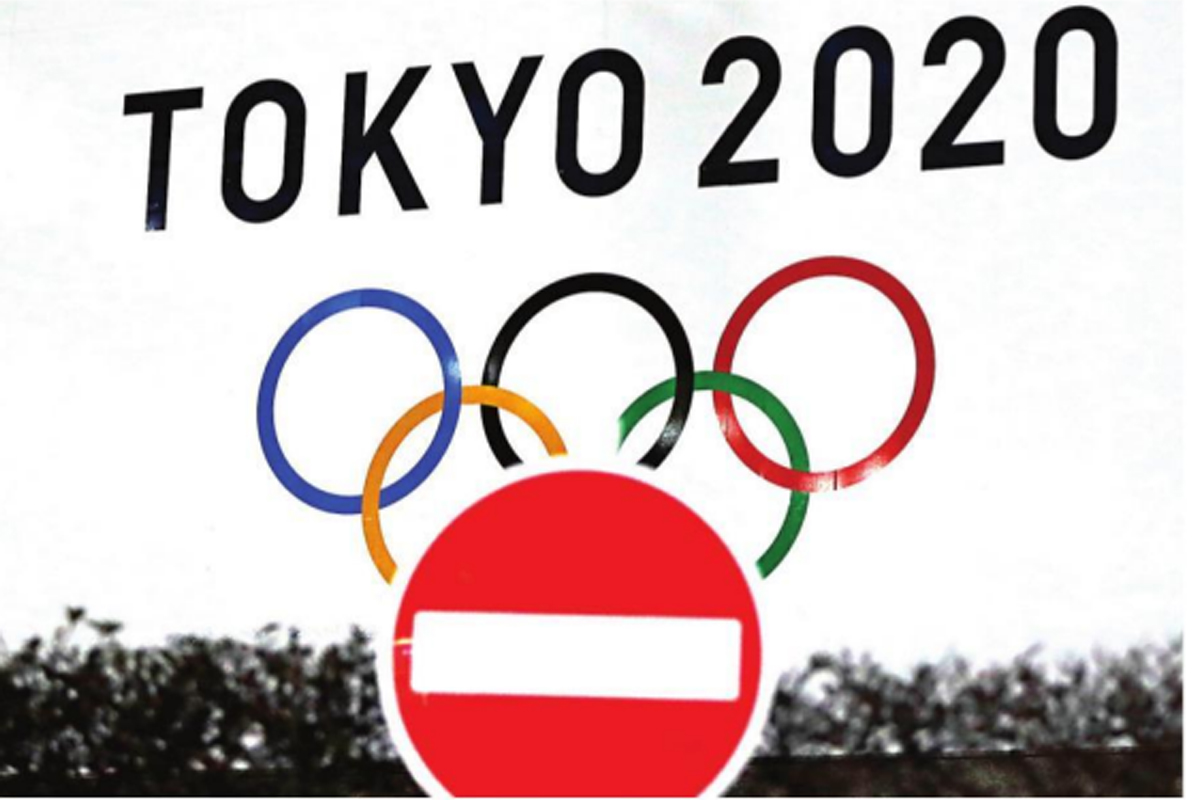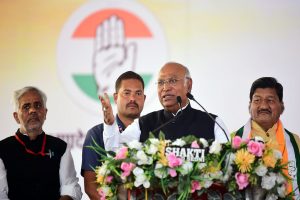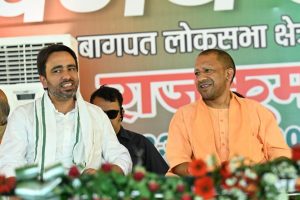“No shouting, no cheering. Please cheer by clapping your hands, and maintain an appropriate distance in case there is overcrowding,” that was the advice given by Yukihiko Nunomura, the vice director general of the organising committee of the Tokyo Olympic Games to spectators turning out to catch a glimpse of the Olympic torch during its journey through Japan.
And it certainly portrays a grim picture of the pandemic-driven world.
However, are the Japanese people ready to cheer at all? How are the Olympics actually being greeted by the people? Not in a very positive way, for sure.
Some recent surveys depicted that nearly 70-80 per cent of respondents wanted a cancellation or further postponement of the Tokyo Olympics.
The Government extending the state of emergency measures in a number of prefectures in Japan, including those where Olympic events will take place, might also have intensified the public’s concern about the risks of hosting the games in July.
One of the largest Japanese newspapers, Asahi Shimbun, recently published an editorial urging Prime Minister Yoshihide Suga to cancel Tokyo 2020 due to mounting public opposition in Japan against holding the Olympics.
Not to ignore the scenario that Japan’s vaccination rate is one of the lowest in the developed world. Less than five per cent people have got at least one jab so far, with around half of them being fully inoculated. The scheduled 1940 Tokyo Olympics went up in smoke due to World War II.
Eight decades later, a more devastating war against an invisible enemy is shedding a dark cloud on another Tokyo Olympics.
There is widespread speculation that a gigantic event like the summer games may very well act as a superspreader amid the ongoing pandemic.
In an open letter to Prime Minister Suga, the Tokyo Medical Practitioners Association recently wrote: “We strongly request that the authorities convince the IOC (International Olympic Committee) that holding the Olympics is difficult and obtain its decision to cancel the Games.”
And the fear-factor might have reached a new dimension when Naoto Ueyama, the head of the Japan Doctors Union, even suggested the Games might prompt the mutation of a new Covid variant! According to Kyodo News, an organization called the Nomura Research Institute estimated that Japan will lose ¥1.81 trillion ($16.57 billion) should the Games be cancelled.
But the same study warned about the possible impact of the Olympics on the Covid situation: “Even if the Games are cancelled, the economic loss will be smaller than [the damage done by] a state of emergency.” And the IOC, certainly, is in no mood to cancel or to postpone further the Tokyo Olympics, which is scheduled to begin on July 23, and the Paralympic Games, scheduled to begin on August 24.
Prime Minister Suga has said the decision to cancel the games lies ultimately and unilaterally with the IOC. Yes, this is certainly as per the agreement of the IOC with the host.
The IOC vice-president, John Coates, is eager to go ahead with the Games even if Tokyo remains under a state of emergency due to Covid. Dick Pound, the longest-serving IOC official, insists “barring an Armageddon” this year’s Tokyo 2020 Olympics will go ahead.
The IOC may be hoping that once the Games achieve their own momentum, this would pacify the sharp opposition they are facing at the moment.
An Olympic certainly is deeply associated with glory – a legacy of the Olympic movement. And the concept of Olympic glory might have evolved quite a bit from the period of Baron Pierre de Coubertin. In the backdrop of the 1996 Atlanta Olympic, Frank Zarnowski, one of the world’s foremost experts on decathlon history, wrote a book titled ‘Olympic Glory Denied, And a Final Opportunity for Glory Restored’.
In his book, Zarnowski outlined biological profiles of eleven world-record holding decathletes, ten of whom – the likes of J. Austin Menaul, Charles Hoff, Fait Elkins, Heino Lipp – never reached the Olympic starting line.
They missed out on Olympic glory either from injury, politics, or some weird twist of fate – reasons beyond their control. For example, in the mid-1920s, Fait Elkins, of Native American background, was considered a possible gold medal winner in the 1928 Olympics in Amsterdam.
A leg injury at the US Olympic trials, however, knocked him out of contention for such immortality. Through these stories of forgotten ghosts of yesteryear, Zarnowski vividly demonstrated that there is a thin line that separates Olympic immortality from abject obscurity.
The eleventh athlete, on whom the opening chapter of the book was written, was Dan O’Brien. O’Brien failed to make the US Olympic team for Barcelona in 1992. As this book was written prior to the 1996 Games, Zarnowski kept on speculating about O’Brien, who got another opportunity in 1996.
In fact, O’Brien did indeed “redeem” himself from his 1992 failure in the Olympic Trials to win the title in Atlanta. If the Tokyo Olympics get cancelled, a generation of athletes would be deprived of Olympic glory, for sure. What else? The insurance industry would face a ‘mind-blowingly’ large loss – about $2-3 billion, for the largest ever claim for a global event cancellation in history.
And Tokyo would still stand to be out of millions of dollars in capital costs for infrastructure built for the games. A huge loss, indeed! However, the IOC might have a larger stake. The ongoing pandemic, the induced new normal, the uncertain dynamics in the future sports arena, and the prospect of a diplomatic boycott of the Beijing 2022 Winter Games due to rising concerns about human rights in China might redefine the future of the Olympic Games, and hence very well redefine IOC’s relevance. What is humanity’s stake? Even if it is a spectator-less event with a restricted number of foreign delegates, with about 50,000-60,000 coronavirus tests to be carried out daily, attendees will only be allowed limited movement and social interaction in Tokyo, with sightseeing and use of public transportation strictly forbidden.
A spectator-less Olympics would not only result in a $23.1 billion loss for Japan, it would certainly be detrimental for the Olympic spirit. Jack Anderson, in his recent article in ‘The Conversation’, commented: “An unwanted games is no games at all.” I disagree. No game is certainly a better option than an unwanted game. Back to the discussion on Olympic glory.
When the Tokyo Games was postponed by a year, it was certainly with a hope of more favourable conditions to host such a global event.
Will Olympic glory be restored in Tokyo as in the case of Dan O’Brien? One year on, despite the availability of vaccines, the global situation is not better – it’s certainly not conducive for such a global feast. An Olympics in Tokyo during the worst pandemic in a century could certainly be a symbolic statement.
For it could mark the victory of the human spirit amid the global war against an invisible enemy.
However, the event set in a bio-bubble would fail to claim that victory. The Olympic, if it finally takes place, will fail to achieve the glory which the Olympic movement thrives for.
The writer is Professor of Statistics, Indian Statistical Institute, Kolkata.











